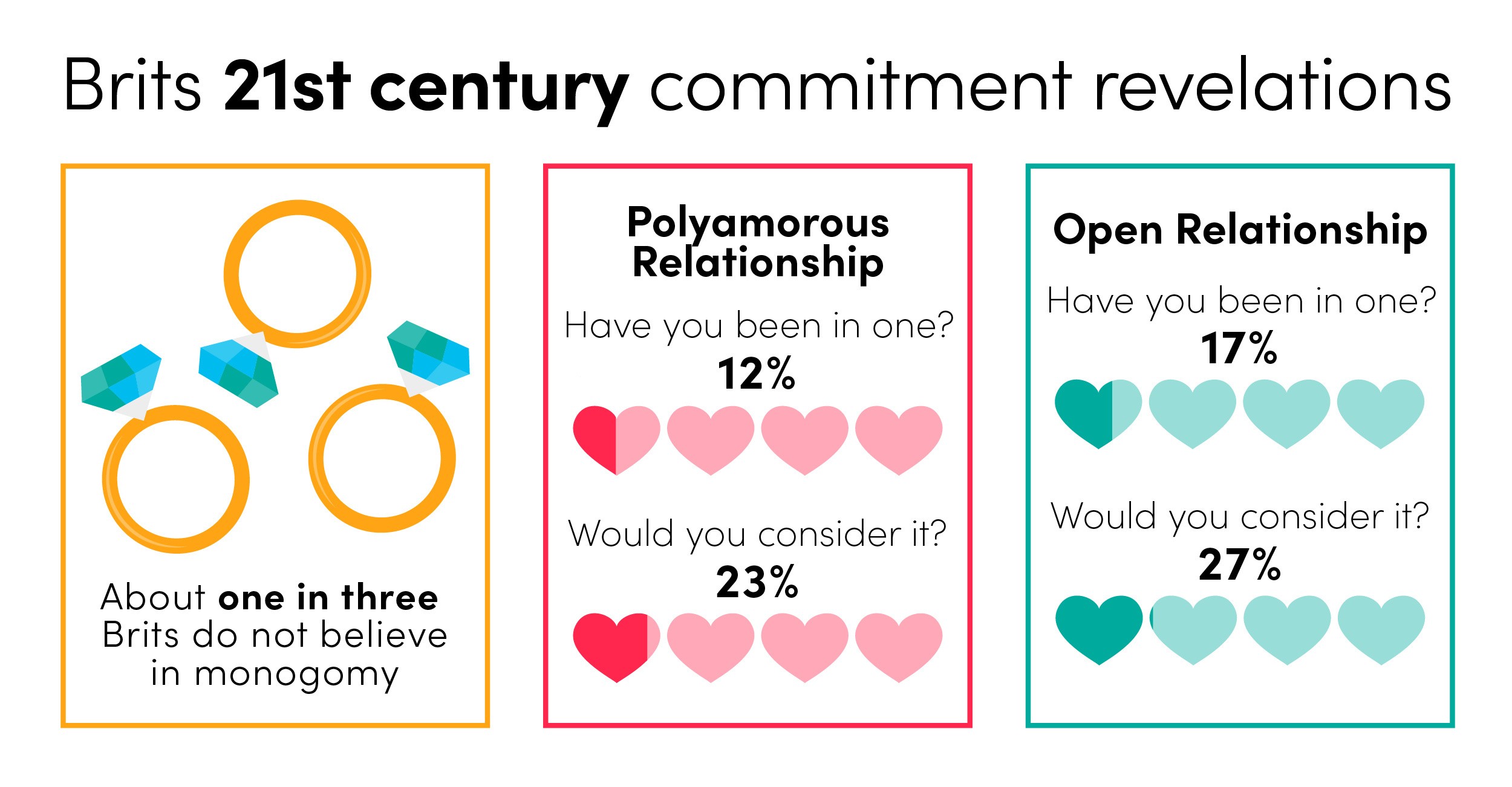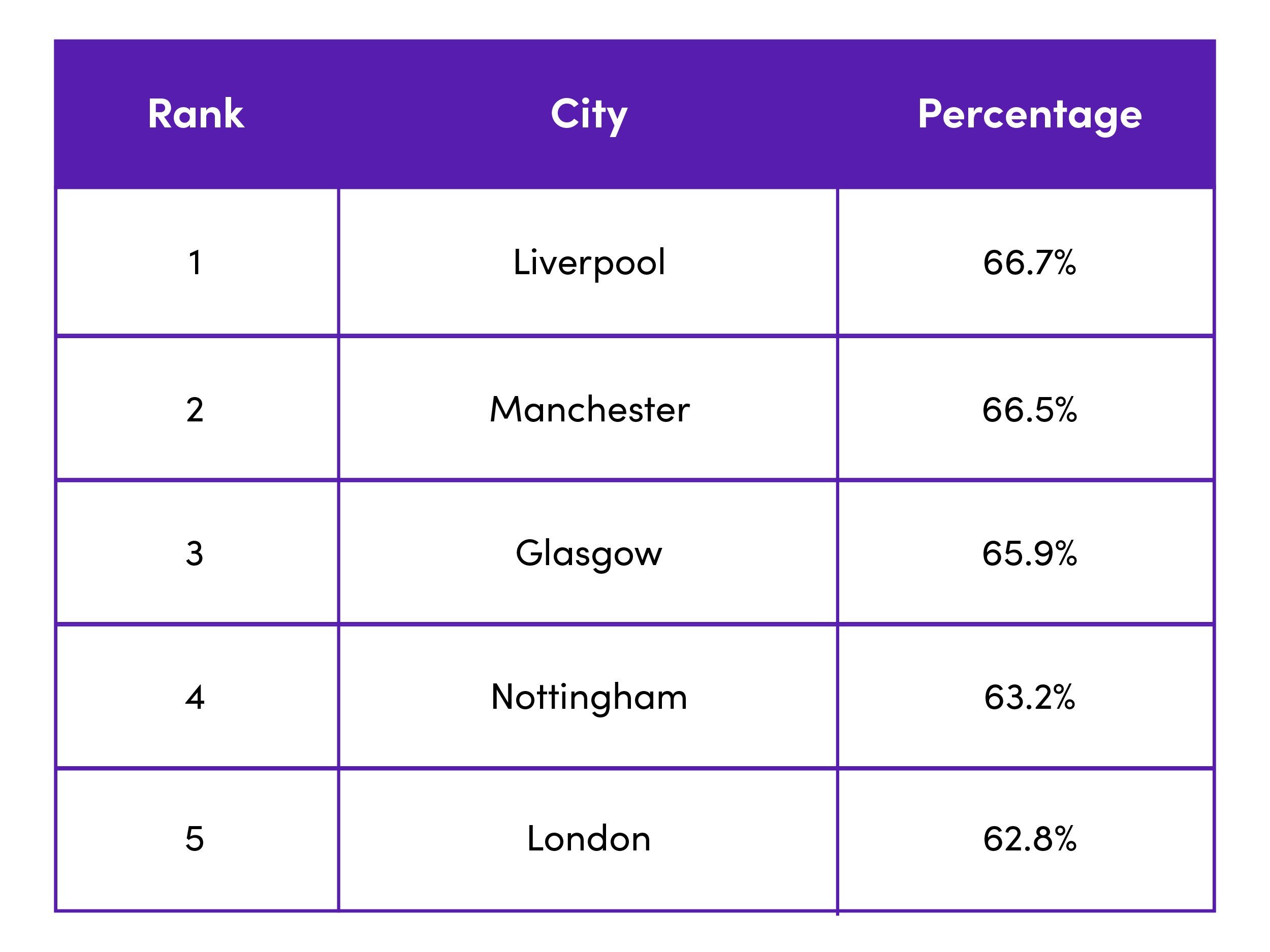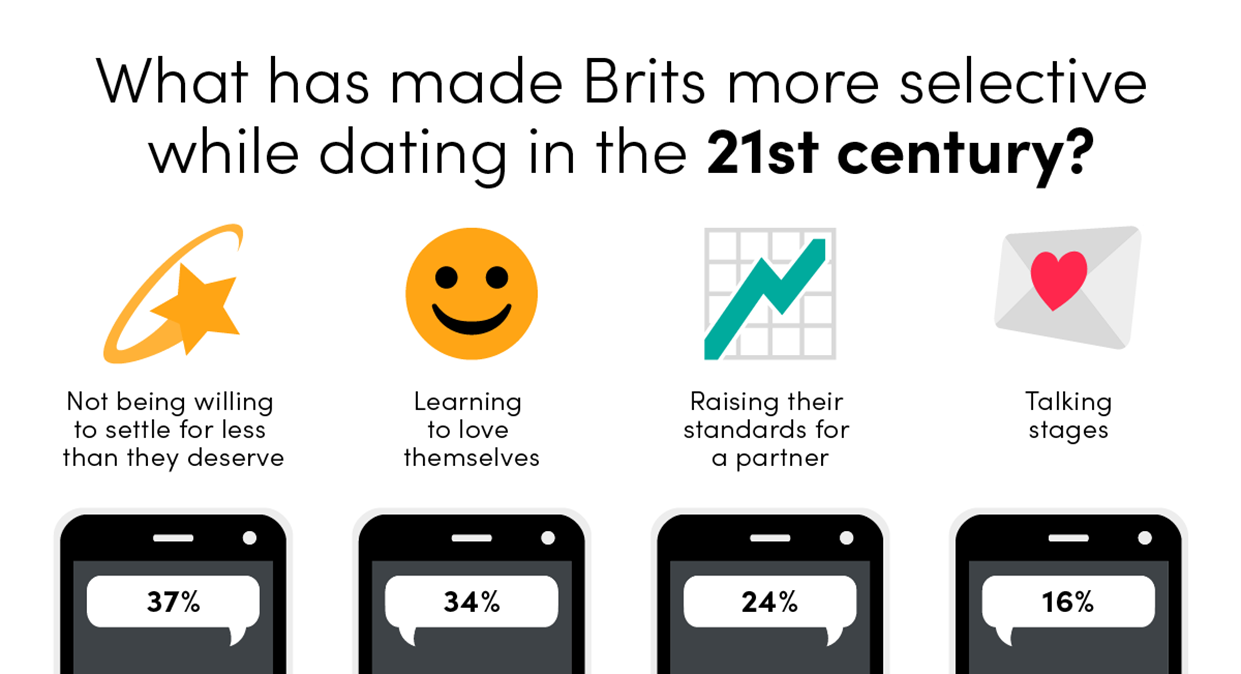UK Sex in the 21st Century Survey
on 3 Aug 2022
A Lovehoney investigation has revealed Brits' changing attitudes to open relationships, monogamy, and bedroom desires.

Whether it's the rise of ‘situationships’, friends with benefits, or the fact that openly discussing your sex life is no longer restricted to a hushed conversation with close friends, there is no doubt that our attitudes toward sex and relationships have changed drastically in the last decade. But just how far have our attitudes stretched when it comes to topics like open relationships, monogamy, and our desires in the bedroom?
To uncover this, Lovehoney surveyed 2,038 sexually active Brits to reveal their opinions about a number of different relationship dynamics and how they genuinely feel about communicating their sexual desires with their partners, friends, and even strangers on the internet.
Brits' relationship revelations
While marriage, kids, a house and the perfect labrador were once the ideal relationship set-up, it's undeniable there has been a shift in how many people actually want to settle down and commit. Our ability to educate ourselves and open our eyes sexually has now skyrocketed. And rightly so: people are now refusing to settle for less than they believe they deserve.
The UK’s commitment transformation

Romantic arrangements are arguably a lot more casual than they have been in the past, with the last few years in particular seeing the mainstream rise of situationships, friends with benefits, and open or polyamorous relationships.
These free-flowing attitudes around commitment were very clearly reflected in our survey, as almost one in three Brits said they did not believe in monogamy. Surprisingly, over a quarter of people said they would consider an open relationship (27%), while almost one in four said they would be open to a polyamorous relationship (23%).
The commitment-free capitals of the UK
When it comes to commitment, it seems as though our desires for loyalty in our relationships vary significantly across the UK. Our survey found Liverpool to be the commitment-free capital, as over two thirds of its residents said they were keen to keep their options open by considering a commitment-free relationship, such as a polyamorous or open relationship. Manchester and Glasgow followed closely behind.
Those in Brighton and Southampton, however, we found to be the keenest on settling down and finding ‘the one’.

Men were significantly more open to exploring commitment-free relationship setups compared to women, as 39% of men said they would explore an open relationship, compared to just 14% of women.
Gender wasn’t the only differentiator in preferences. Those aged between 18-24 were found the keenest to explore an open relationship, shortly followed by those aged between 35 and 44.
Relationship expert Callisto Adams has offered some insight on these changes:
“This shift in attitudes towards commitment may be a result of the rapid advancement of technology which makes information extremely easy to access, and above all, makes connections very easy to create.
“This easy access to connection and information has made people more aware of their sexuality, preferences, and different commitment styles.”
The rise of situationships and friends with benefits
Dating in the modern world is undoubtedly no easy feat. Whether you’re in your first ‘talking stage’ or stuck in a 6 month situationship, dating is certainly not as simple as it used to be. In fact, our survey discovered that almost one in ten Gen Z’s are currently in a situationship. But why are we seeing such a sharp increase in these new kinds of entanglements?
Relationship expert Daniela Birch commented:
“Many individuals are not focusing on long-term committed relationships, having children and desiring to settle down. Factors including individuals’ careers, making money or not being sure what they want in life seem to be driving this. Individuals are now more open to having casual relationships over committing to something they may not be ready for.”
What has made Brits more selective while dating in the 21st century?
While Brits continue to prioritise putting themselves first, there has been an increase in how selective we are in our dating lives. The rise of dating apps and social media has opened our eyes to our ability to move forward with or reject people with one swipe of a finger, but what exactly is making us more selective when finding ‘the one’?
We found that self-love and empowerment are the main factors driving our selectivity whilst finding a partner, as over one-third (37%) of Brits say being unwilling to settle for less than they deserve was the most influential factor. A further 34% of Brits said that learning to love themselves also had the same effect, and almost one in five (24%) stated this was due to them raising their standards for a potential partner.

Our changing attitudes towards sex - and sex toys
According to our internal data, a greater number of people are pushing each other sexually in the 21st century. Whether it's exploring fantasies and kinks, trying out different types of bedroom play, or incorporating sex toys such as clitoral stimulators or butt plugs, couples have been spicing up their sex lives much more over the past three years. However, being more sexually adventurous with their partners was not the only priority on Brits' ‘to do’ list - self pleasure has also taken centre stage as Brits incorporate more self-pleasure toys, including masturbators and vibrators, more frequently than ever.
But why are we seeing the nation open their eyes to a more sexually adventurous self? Sex expert Ness Cooper explains:
“It is now easier than ever to access information on how to perform certain sexual acts, from vanilla sex to BDSM bondage. This has made it possible for many Brits to explore sex acts they wouldn’t have known about previously.”
So as our minds continue to expand sexually, it’s no surprise that a number of people say sex toys are an essential part of their sex lives. In fact, an increasing number of Brits have admitted that toys have not only have helped them reach orgasm - they have also vastly improved their sex lives.
And bonus, sex and masturbation have some pretty amazing benefits to our health, both mentally and physically, and more and more people are now using sex as a way to maintain their wellbeing in 2021 compared to 2017.
Wanting to lead a more sexually adventurous life, but don't know where to start?
For those who would love to explore and become more sexually adventurous in (and even out of) the bedroom but aren’t exactly sure how to bring it up, the thought of communicating one’s sexual desires can be daunting. Sex and relationship expert Ness Cooper says:
“While communicating sexual desires with a partner may feel nerve-wracking, it can be helpful to communicate them as it can help you both to have a fulfilling sex life.”
Ness suggests the following five tips for communicating your desires with a sexual partner:
1. Don't rush your sexual partner
“When communicating your sexual desires, it may take your sexual partner time to process and understand them. If this is the case, don’t rush them when looking into exploring your desires.”
2. Ensure your partner is comfortable with your desires
“Don’t make your sexual desires an obligation when it comes to seeing them through. Rather, allow your partner the option of whether or not they feel comfortable exploring them. Learning to compromise when needed is important.”
3. Ensure to open a two-way conversation
“Ask your partner if they have any sexual desires and allow them time to talk about them too. We can often get a bit caught up in our own wants and needs, but we should remember that our sexual partners will have some of their own too.”
4. Ensure to check in with your partner after your discussion
“Talking about sexual desires can lead to intense feelings, and aftercare may be needed. Remember that if you’re feeling intense emotions after talking about desires, it’s likely your partner is feeling similar too.”
5. Try creating a sexual bucket list
“Try the traditional buck-it list and ask your partner if they have one too. This can be done separately or together, and while it may not go into too much detail, it may be a great way to introduce the conversation into your relationship.”
Definitions:
Friends with benefits: A friend with whom one has casual sexual relations without commitments. (Merriam Webster)
Situationship: A situationship is the middle stage where a couple is in between a committed relationship and something more than just friends. (NBC)
Talking stage: A talking stage is a grey area at the earliest point in a relationship when you've both expressed a mutual romantic interest and are willing to get to know each other on a deeper level. (The Independent)
Methodology
The survey data in this study is based on a survey of 2,038 adults in the UK over the age of 18 who have previously had sex. The survey took place in May 2022.
Gender splits are based on respondents choosing how they identify.
Experts:
Ness Cooper is a sex expert at The Sex Consultant.
Callisto Adams is a relationship expert at He Texted.
Daniela Birch is a relationship expert.
